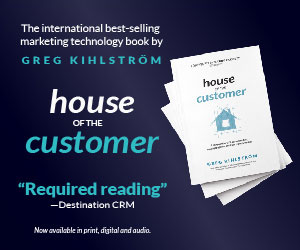This article was based on the interview with [name] of [company] by Greg Kihlström for The Agile Brand with Greg Kihlström podcast.
Listen to the original episode here:
Machine learning is revolutionizing decision-making processes across various industries. The interview highlights how machine learning is being applied in the insurance sector to improve claims processing. By allowing consumers to take pictures of the damage and using machine learning algorithms to determine the cost of repairs, claims can be processed quickly and efficiently. This not only benefits the customer by providing a faster resolution but also reduces the workload for claims adjusters, allowing them to focus on more complex cases.
The conversation with Chomko also stresses the importance of explainability in machine learning. While machine learning algorithms can make accurate predictions, it is crucial to understand why a certain decision was made. This level of transparency is essential in gaining trust and ensuring that decisions are fair and unbiased. For example, in the case of fraud detection, being able to explain why a transaction was flagged as fraudulent can help users understand and correct their behavior.
Category leaders in various industries are leveraging machine learning to gain a competitive advantage. In retail, machine learning is used to segment customers and identify those who are more likely to make a purchase. This allows businesses to personalize their offerings and provide a better customer experience. In healthcare, machine learning can be used to predict patient outcomes, optimize treatment plans, and identify potential risks. Financial services can benefit from machine learning in fraud detection, risk assessment, and personalized financial advice.
While machine learning has made significant advancements in improving decision-making processes, there is still progress to be made. The transcript mentions examples where machine learning can further assist organizations, such as identifying fake insurance policies or fraudulent claims. By automating these processes, companies can allocate their resources more efficiently and focus on providing better service to genuine customers.
Machine learning has also proven to be valuable in marketing. By analyzing customer data, machine learning algorithms can identify patterns and preferences, allowing businesses to target their marketing efforts more effectively. This leads to higher conversion rates and increased customer satisfaction.
In conclusion, automation and machine learning have the potential to greatly enhance decision-making processes. By automating routine tasks and using predictive analytics, businesses can prevent errors, improve efficiency, and provide a smoother customer journey. However, it is important to note that while automation and machine learning can augment human decision-making, human judgment and experience are still essential in making final decisions. Automation and machine learning are powerful tools that support and enhance the customer experience but should not replace human expertise. As technology continues to advance, organizations should embrace machine learning as a valuable tool in their decision-making processes.










